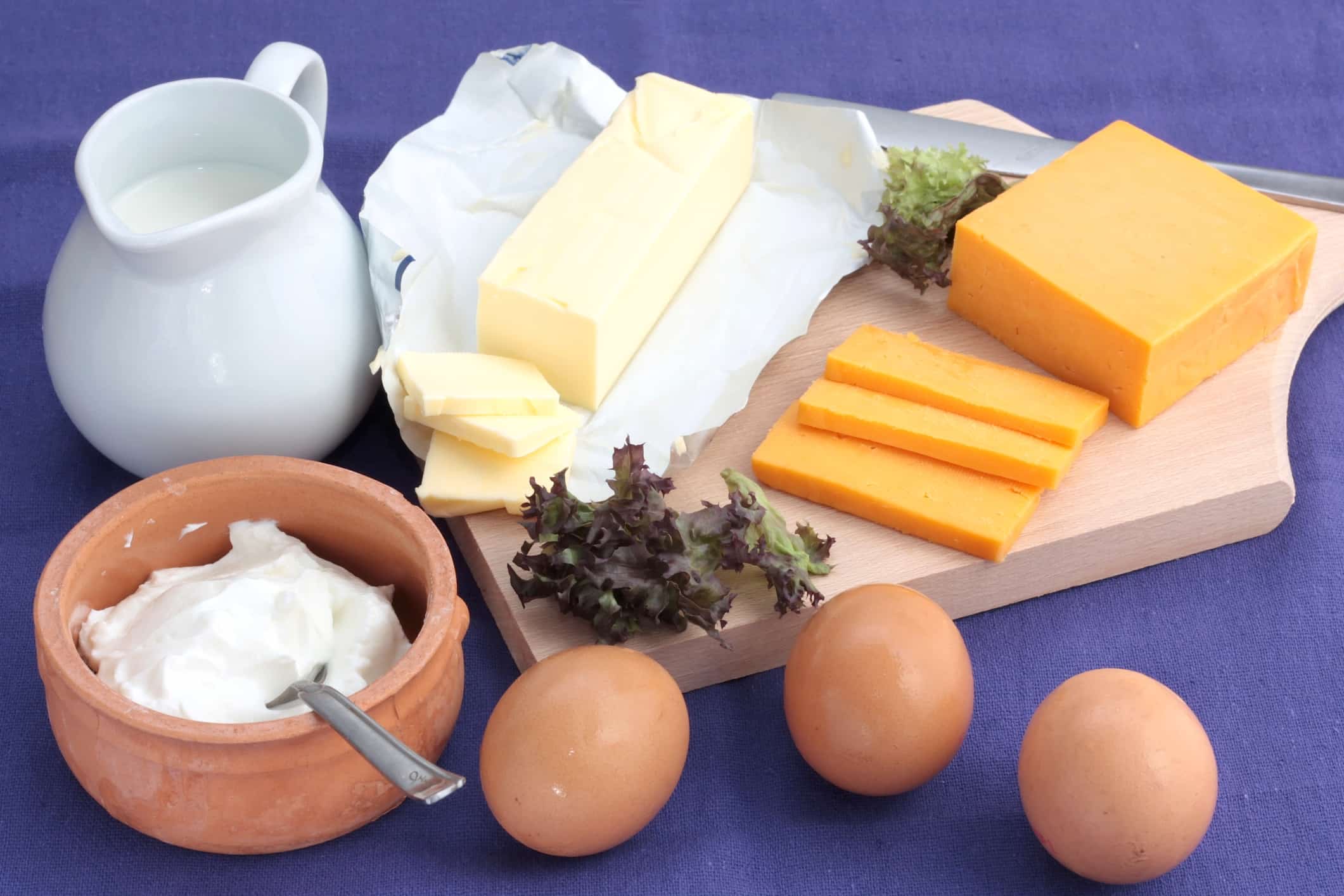
[cmamad id=”8951″ align=”center” tabid=”display-desktop” mobid=”display-desktop” stg=””]
Besides skin cancers, prostate cancer is the most commonly diagnosed cancer in men.
That goes for men in North America, Europe and parts of Africa.
The United States has the highest number of prostate cancer diagnoses in the WORLD.
With all these prostate cancer diagnoses, it’s not surprising that we’re obsessed with trying to find the cause.
But a lot of things get blamed before there’s any research to prove a connection, let alone a cause.
Dairy is one of those victims of prostate cancer blame.
Contrary to popular belief, consuming dairy products does NOT contribute to higher risk of prostate cancer.
There is no research proving that it does.
Still….
People believe it.
Now, where does a belief like this one start?
It starts with finding out some small connection.
[cmamad id=”8952″ align=”center” tabid=”display-desktop” mobid=”display-desktop” stg=””]
But a connection isn’t the same as a cause — in fact, a lot of so-called causes are merely symptoms of the same problem.
That’s the case here with dairy.

The calcium in dairy suppresses the body’s production of a specific form of vitamin D.
1,25-hydroxy-vitamin D3.
This type of vitamin D inhibits the growth of prostate cancer cells.
So, it seemed natural to assume that the calcium lets prostate cells grow rampant because it suppresses the vitamin that slows them down.
But calcium isn’t the only thing in milk, and nothing occurs alone.
And frankly, there isn’t enough calcium in normal dairy products to pose a threat to the vitamin D3.
You’d have to consume a LOT of dairy foods to come close to the danger zone.
And then you have to remember that the body NEEDS MORE calcium than we get from the dairy we eat.
That leaves medical professionals in an awkward place.
Many doctors believe that dairy products increase the likelihood of developing prostate cancer.
But then they recommend increasing calcium to a certain minimum amount to prevent other health conditions.
If you don’t get enough calcium, you can develop health conditions such as osteoporosis.
And then you have this study.
In 1988, a study began with 10,011 male Harvard alumni.
The goal was to find that milk and cancer link and prove it.
The men completed a questionnaire that asked them about their intake of different dairy products.
Items on the list included whole milk, low-fat milk, cream, ice cream, yogurt, cheese, and butter.
It asked the men to rate the frequency of their intake of these products using a scale of never to six times per day.
And the questionnaire asked about other possible risk factors.
It asked about age, weight, smoker status, and parental history of prostate cancer.
At the beginning of the study, the participants had a mean age of 67 years.
The data for the 25% of men who had the highest dairy intake showed something interesting.
It showed that these men were also more likely to have other risk factors.
They were older, more likely to smoke, less likely to be overweight, and more likely to have a family history of prostate cancer.
The study followed these men for ten years, through 1998.
At the end of the study, 815 men had prostate cancer, and 99 of the men died from it.
The researchers compared the dairy intake habits of all the men.
They looked at the men who had prostate cancer and compared them to the healthy men.
And they found no relationship at all between dairy intake and developing prostate cancer.
None.
Even when they looked at just the data from the men who died from prostate cancer, they could not find any relationship.
It bears repeating — there was still no relationship between dairy intake and fatal prostate cancer.
Now, starting out, the study’s authors agreed with other studies that implied that high calcium levels could be related to prostate cancer.
You remember those studies that showed that calcium suppresses that form of vitamin D3.
But they failed to find any proof that the hypothesis is correct.
They concluded that their study of 10,011 men did not support the theory that increased calcium can cause advanced prostate cancer.

Only levels of calcium much higher than the recommended daily allowance might POSSIBLY influence the chance of developing prostate cancer.
Possibly.
Here’s another study published in 2003.
It also set out to find a relationship between diary and cancer risk.
And it’s a pretty large study.
Beginning in 1992 – 1993, this study followed 65,321 men.
Like the previous study, the men were given a detailed questionnaire on diet, lifestyle, and medical history.
Then the researchers followed up with the men in 1998.
At that time, 3,811 cases of prostate cancer were among the participants of the study.
This study got closer to showing calcium to cause risk, but it also fell short.
Careful analysis of the data found that VERY HIGH levels of calcium MIGHT have a modest effect on prostate cancer risk.
Might have a MODEST effect.
But normal to moderate levels of dietary calcium did NOT have an effect on the development of prostate cancer.
Now, very high levels of calcium might have a very small effect on the development of prostate cancer.
But intake would have to be way ABOVE the recommended daily allowance for men.
So, no — dairy and calcium do not increase the risk of prostate cancer.

http://cebp.aacrjournals.org/content/12/7/597.short
Dairy products, calcium and prostate cancer risk
https://pdfs.semanticscholar.org/80c3/b1ab6b7c6c7b452000c6675dd287b0c84fc6.pdf

Leave a Reply